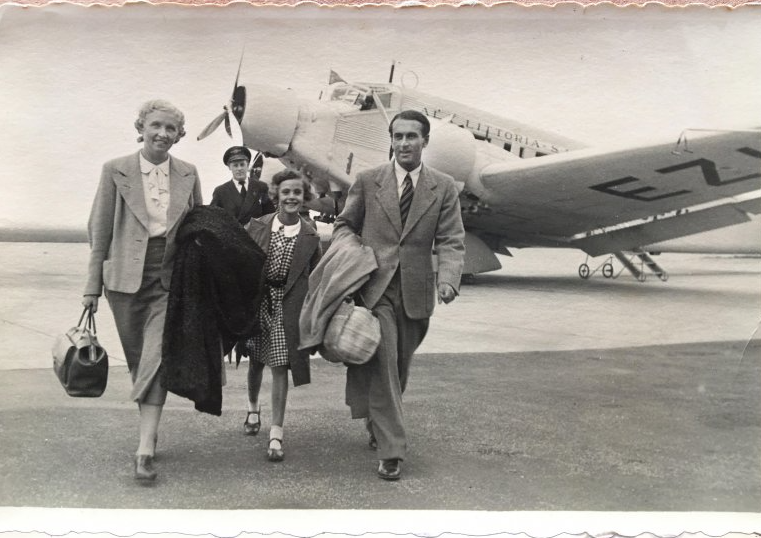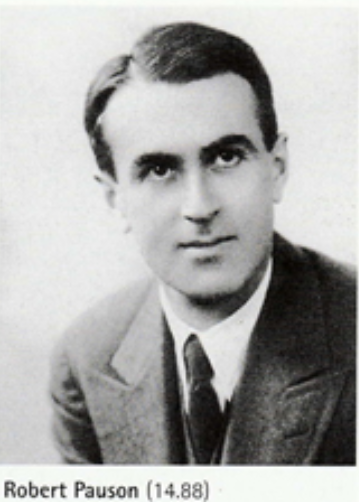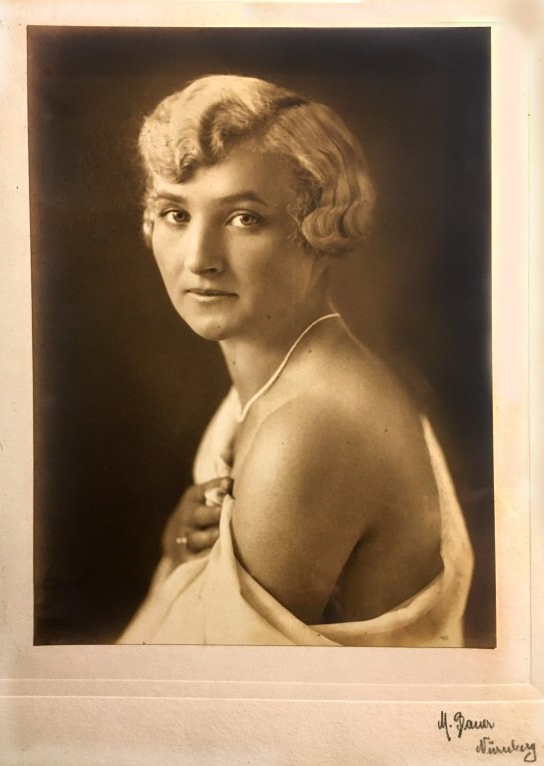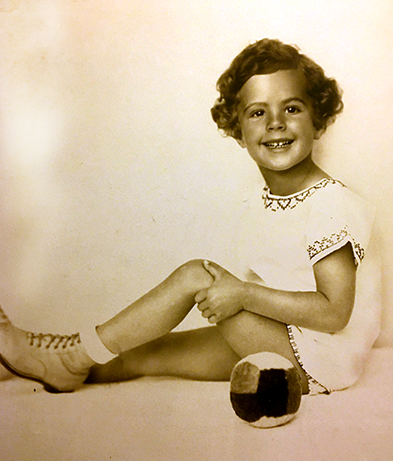Robert, Emilie and Margit Pauson
Authors: Paul Dörrzapf, Bastian Girschke

One of the best families of Lichtenfels
Robert Pauson (November 15, 1897 – April 22, 1960), who managed the business from 1920 to 1938, learned the profession of a merchant and took part in World War 1 as an infantryman from September 1916 onwards. At the beginning of the twenties he married Emilie Ziegler (April 2, 1901 – April 21, 1971) from Münchberg. The couple lived with their daughter Margit (*1928) and grandmother Rosa Pauson (1864-1949) in the rooms above the basket factory in the stately sandstone building at the train station. The family led an upper middle-class lifestyle that must have aroused envy. However, a contemporary witness, who often visited her friend Margit, gave detailed reports of great hospitality and openness that she experienced in the Pauson house.
 Pauson Family
Pauson FamilyIncreasing threat of anti-Semitism
 © Pauson family
© Pauson family © Pauson family
© Pauson family
State-orchestrated anti-Semitism made life increasingly difficult for the family from 1933 onward. People were soon shouting "Jew!" at Margit Pauson in the schoolyard. Even her bedroom window was smashed with a brick during the night. Her mother Emilie, a Catholic, was advised by a local priest to divorce Robert Pauson as a (non-practicing) Jew. This, he said, was much safer in those times. This gave Emilie deep food for thought - it became clear to her that they had to leave Germany.
When her brother-in-law Stefan Pauson (March 23, 1887 – July 25, 1964) was deported from Bamberg to the Dachau concentration camp during the November pogroms, Emilie Pauson decided to immediately leave the country with her daughter.
Escape to England
Margit Pauson, then 10 years old, had just returned from a summer holiday in September 1938 when her mother picked her up from school, uncharacteristically by car. Her father, Robert Pauson, was already in England on a business trip at the time. Using a personal secret code, Emilie Pauson made it clear to her husband by telephone that he could not return to Lichtenfels under any circumstances.
 © Pauson family
© Pauson familyBefore fleeing, the girl was told at the time that it was another holiday trip, during which she would also see her father again. Nevertheless, she had no chance to say goodbye to her grandmother Rosa in any form which was very hard for her. And she had to leave her beloved dog “Struppi” behind which was later killed by Nazis when they devastated the Pauson estate on the night of the pogroms in November 1938.
Margit and her mother were not allowed to carry larger valuables, let alone a lot of money, which would have immediately signaled that they were on the run and by no means on a holiday trip. Emilie had therefore had rings made in advance that she could take with her and easily turn into money later.
Leaving the car behind at the Munich airport, they first went to Switzerland to a friend of Emilie's who owned a hotel. Their escape finally ended in Leicester in the East Midlands.
Robert Pauson worked as a salesman and manager in a wicker furniture company after a period of short internment and longer unemployment in England. Things were not going well for the once prosperous family. He always stayed an alien in England and later moved back to Germany (Lochham near Munich) even leaving his wife in England. Emilie refused to ever set foot in Germany again. Robert died shortly after his return to Germany on September 22, 1960. Emilie died on April 21, 1971 in Coventry/England where they had moved after Roberts departure.
Margit Pauson returned to Germany years after the war to study the violin at the Hochschule für Musik in Munich. She went back to England to marry a doctor.
